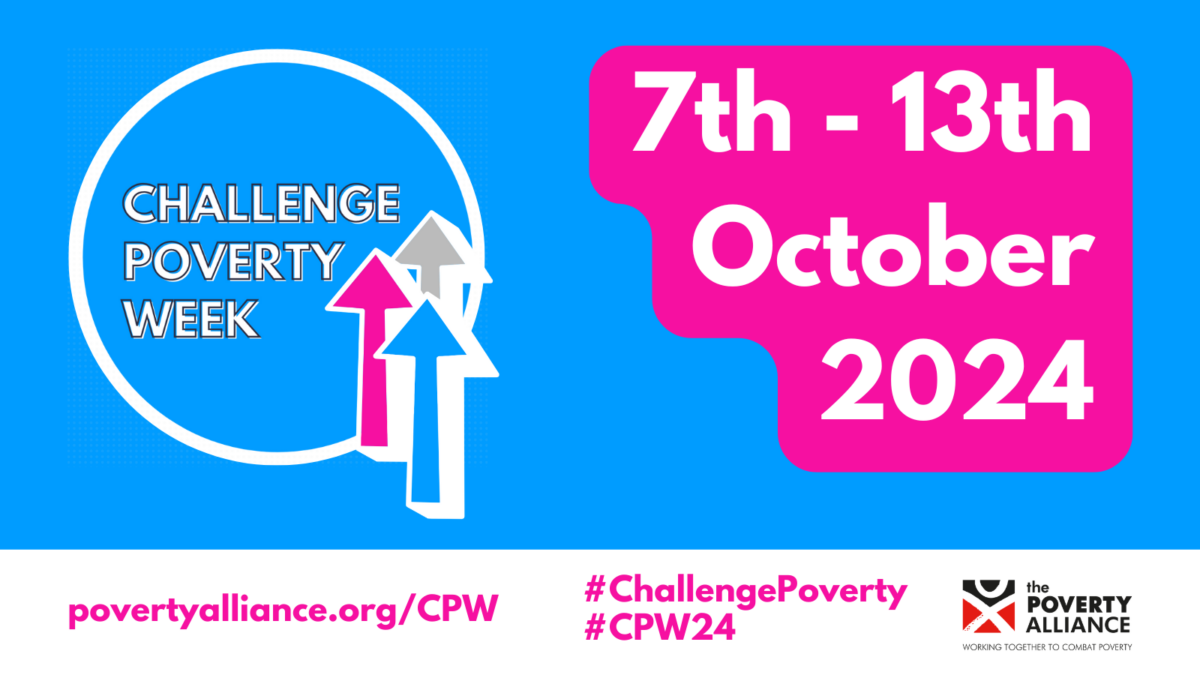Scotland’s faith leaders have united around a call to deliver a Minimum Income Guarantee with the potential to draw a line under poverty once and for all.
Representatives of Christian, Muslim, and Sikh congregations say the measure is needed to allow everyone to live a ‘decent, dignified, and healthy’ life.
Their appeal came in a joint statement made in the advance of this year’s Challenge Poverty Week – the annual drive to highlight the injustice of poverty in wealthy Scotland, and highlight social action to help people build better lives.
The leaders extend an invitation for ‘prayer, reflection or meditation’ on the ‘broken structures and systems’ structural that cause poverty.
Their statement says: “We offer our encouragement and hope for inspiration to action which can overcome the barriers to fairness, equal opportunity and compassion, This year we highlight in particular the growing interest in and support for a Minimum Income Guarantee, which seeks to reform work, social security and the provision of essential services like childcare to guarantee everyone would have sufficient income.”
It continues: “We share a view that the values of community, solidarity, neighbourliness, hospitality and kindness should be the cornerstones of our society, and that everyone should have enough to be able to live life without the fear of not having enough or exclusion which poverty brings.
“The Minimum Income Guarantee is a big bold idea, but one that can be delivered. At its heart the desire to build a just and compassionate Scotland, where everyone has sufficient income and the opportunity to flourish. Something that we can all work towards.”
The Minimum Income Guarantee idea was first promoted by the IPPR think tank in Scotland. Most people would reach the guaranteed level through paid work, with Government supporting employers to pay real Living Wages, and provide flexible Living Hours. The Government would also create a solid foundation of public services to reduce people’s living costs and lower their barriers to employment – such as extended universal childcare, affordable transport, affordable housing, or a social tariff on energy bills.
For people who can’t work because of sickness, disability, or caring responsibilities – and those who do not reach the Minimum Income Guarantee level through their paid work - there would be a social security payment, tailored to meet their individual needs.
The Scottish Government’s Expert Group is expected to publish its final report on the Minimum Income Guarantee later this year.
This year’s Challenge Poverty Week runs from 7 – 13 October. It is co-ordinated by the Poverty Alliance, to highlight the issue of poverty in Scotland, and to raise awareness about ways to solve it.
Poverty Alliance chief executive Peter Kelly said: “We are extremely grateful to all the faith leaders who have raised their collective voice against poverty, encouraging people to join their call for a just and equal Scotland.
“This Challenge Poverty Week organisations across the country will be highlighting stark facts – like growing homelessness, debt, and destitution. It can’t be right that in wealthy Scotland nearly 1 in 4 of our children are living in poverty, and more and more people are being pulled into deep poverty.
“But Challenge Poverty Week isn’t just about making people more aware about the injustice of poverty – it’s about making sure those in power work to end it. We agree with Scotland’s faith leaders that the Minimum Income Guarantee has the power to make sure everyone has a solid foundation to build a better life for themselves, and a better future for all of us.”
You can read the statement and signatories in the window below, or download it from here.


Enter your email address to receive regular e-updates about our work. If at any time you want to stop receiving these, simply contact us. We’ll keep your details safe and won’t share them with any other organisations for their marketing purposes. For full details see our Privacy Policy.